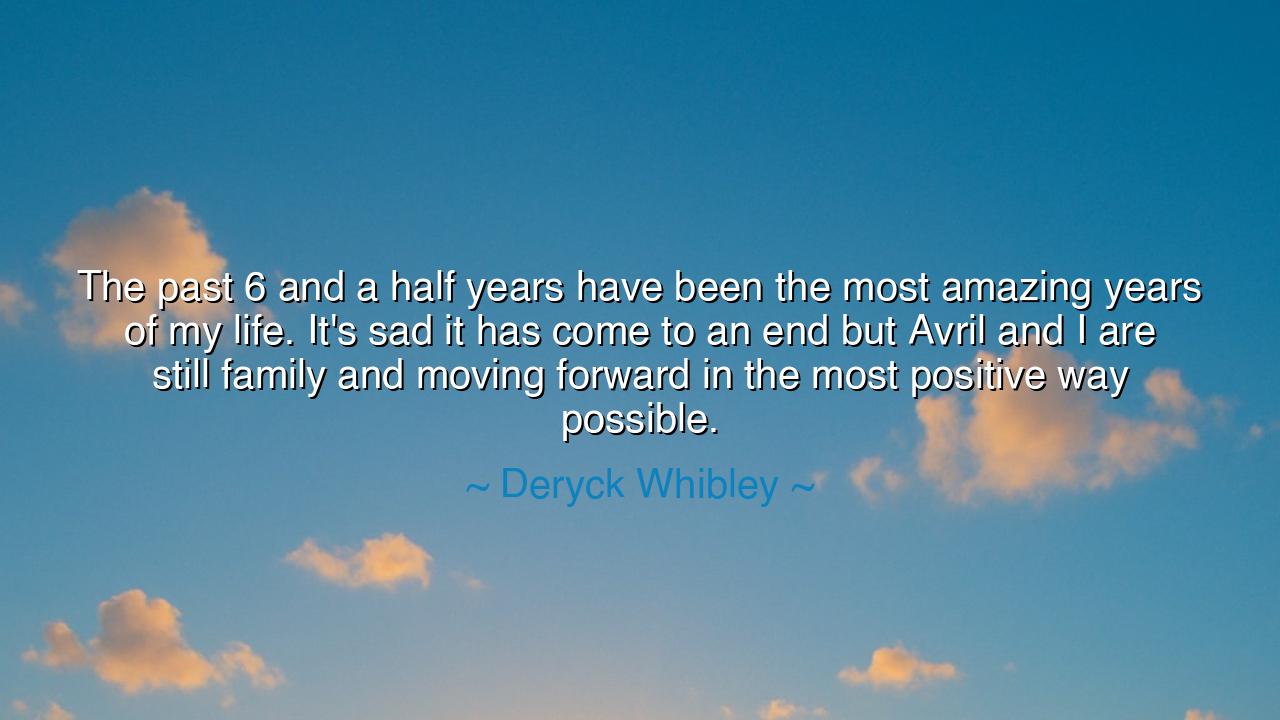
The past 6 and a half years have been the most amazing years of
The past 6 and a half years have been the most amazing years of my life. It's sad it has come to an end but Avril and I are still family and moving forward in the most positive way possible.






The words of Deryck Whibley, “The past six and a half years have been the most amazing years of my life. It’s sad it has come to an end, but Avril and I are still family and moving forward in the most positive way possible,” are the reflection of a heart that has chosen peace over bitterness, gratitude over regret. Though spoken in the wake of a parting, these words are filled not with despair, but with grace, for they recognize the truth that love, even when it changes form, remains sacred. Whibley, musician and former husband of singer Avril Lavigne, speaks here as one who has loved deeply, lost gently, and understood that the ending of a chapter does not erase the beauty of what was written within it.
In the tone of his words lies the essence of maturity—the ability to hold sorrow and acceptance in the same breath. He does not deny his sadness, but he refuses to be ruled by it. He acknowledges the pain of endings, yet he also honors the light that those years brought into his life. This dual awareness—the acceptance of both joy and grief—is a wisdom that the ancients often spoke of. The philosopher Epictetus taught that the wise man must not cling to what is fleeting, but love it fully while it remains. Whibley’s words embody this same teaching: that true love, whether it endures or fades, leaves the heart nobler if it has been met with gratitude rather than resentment.
To say, “we are still family,” is to speak from the soul of forgiveness. It means that though the bond has changed, the respect, affection, and shared history still live. In this, Whibley offers a lesson to all who have suffered loss, whether in love or friendship: that endings need not destroy what was good. Too often, the ashes of love are scattered by anger or pride. Yet he reminds us that love, once real, remains part of who we are. Just as the roots of a great tree remain even after the branches are cut, so too does shared love remain beneath the surface of our lives. To honor it, even in separation, is to rise above pain and act from wisdom.
History itself offers a mirror to this truth. Consider the tale of Marcus Aurelius and his wife, Faustina. Though their marriage was marked by both devotion and difficulty, when she died, Marcus mourned her not as a perfect woman but as the companion of his life’s journey. He ordered her statue raised not out of duty, but out of remembrance—for he believed that love, even flawed, was worthy of reverence. Like Whibley, he understood that to cherish what was once good is not to deny what was painful. Rather, it is to see life as a tapestry of both—woven with light and shadow, and made beautiful through the contrast.
Whibley’s choice to move forward “in the most positive way possible” is a declaration of resilience. It is the courage to begin again without bitterness. The ancients called this the art of transmutation—the ability to turn loss into strength, heartbreak into compassion, endings into beginnings. To live this way is to recognize that sorrow, when faced with grace, refines the spirit. It burns away the illusions of permanence and teaches the heart that love is not possession but transformation. What once bound two souls in marriage can still bind them in mutual respect, in shared kindness, in the memory of what was beautiful.
In his statement, Whibley also reminds us that time itself sanctifies love. When we look back, the anger fades, but the tenderness remains. By naming those years as “the most amazing” of his life, he teaches that gratitude is the final act of love—the one that endures when passion has cooled. This is a lesson the wise have always known: that no relationship, however brief, is wasted if it taught the soul to grow. Each encounter, each affection, adds a verse to the poem of our becoming.
So let this teaching be passed down: when something precious ends, let it end with grace. Do not curse the door that closes, but bow to the lessons it leaves behind. Be thankful for the joy you have known, and release it with gentleness. For the heart that can love without bitterness, remember without pain, and move forward without fear, is the heart that has truly understood love. As Deryck Whibley reminds us, every ending can still carry light, and those who walk forward in peace carry within them a love that no loss can destroy.






AAdministratorAdministrator
Welcome, honored guests. Please leave a comment, we will respond soon